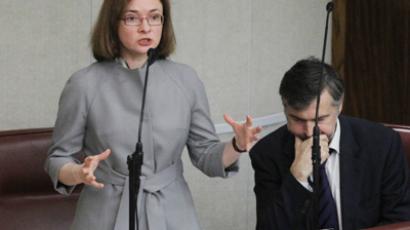Environment and perception en route to attracting investment

Ahead of the next session of the Foreign Investment Advisory Council in Mid October, Business RT spoke with Chris Weafer, Chief strategist at Troika Dialog about the need for Russia to attract more foreign investment.
RT: How significant is Russia’s need for increased foreign investment? CW:“Russia clearly needs to increase the level of FDI, it’s now running at less than 1% of GDP, which is the lowest amongst the major developing economies.But Russia really has to focus on two areas.One is attracting foreign capital, but within that I would also say attracting Russian capital home, and keeping Russian capital here.I think that is even a bigger priority than attracting capital from foreign investors.But alongside that, and I think equally critically, if not more so, is attracting the participation of foreign companies in Russian industry.Because this is a major flaw that Vladimir Putin has talked about a number of times, is the fact that Russian companies don’t have the experienced management, don’t have the skills sets, because they haven’t been global, a lot of them haven’t changed a great deal in the last 20 years.So they need to partner up with established foreign companies, in their respective industries in order to, if you like, benefit, from the contagion of experiences and technology.We saw that very much as the case in the car sector, where Vladimir Putin, a couple of years ago tried very hard to get an equity position in General Motor’s Opel unit, in Germany.When that didn’t happen they revitalized the partnership deal with Renault and Nissan.And its quite clear that that partnership has helped, is one of the key factors that’s helped the Russian car sector recover from crisis as quickly as it has.So I think that we are looking at therefore, two priorities, is, one, to attract foreign capital, of which attracting Russian capital is a big part, of keeping Russian capital is a big part, and secondly, even more important, is the participation of foreign companies alongside Russian companies.To help them modernize their industries.”RT: Has the Government moved fast enough?Does it need to move faster?CW:“Clearly not! No.I think it has not been successful in improving the perception of Russian business risk and investment risk.I think it is a widely held view in the West that Russia is still a high risk place, or a difficult place, to do business.So the government really has only started to address those issues.I think that joining WTO, which we still expect that to happen either later this year or very early 2012, I think that’s a significant positive step along that route.But we do expect that the next government, the new government to takeover in spring to really, what we hope is to improve both how business’ are actually run in Russia, or how difficult it is to do business in Russia, as also dealing with the perception.”RT: With new administration, what will international investors be looking for progress on first up?CW:“First of all, we hope that the next government really prioritizes measures to improve the investment climate and the business climate in Russia.There is a general concern right now, particularly evident since Vladimir Putin announced that he would be running for the presidency – the western media have been writing a lot about a return to the old style government we had before. I think that is absolutely impossible.I think it is quite clear that Russia can no longer rely on kind of an oil driven economic model.Russia needs to change that model and that new model will have to be focused on increased investment, increased participation by foreign companies in Russia, and also great improvements in the business environment in Russia.I think this is now very evident, and I believe there is a strong consensus in government that this needs to happen.So we need to see that, if you like, locked in as the key priorities and key policies of the next government, as a first step. Then, some of the reform agenda items, you know, to cut the red tape, reduce the number of, for example, license steps required to set up a business, which the government has promised, but hasn’t really affected yet – we would like to see that happen.You know the financial services side, there has been some steady progress – the merger of the two Moscow bourses, the plan for central custody, in other words to make it easier to raise capital in Moscow.So we just need to see continued progress in the programme that has already been well set out.It has already been well published and well known what steps need to happen in Russia to improve the investment climate – we just need to see faster progress in implementing these steps and making it happen.And that’s what we hope to see from the next government – a government that is much more focused on getting this reform agenda further down the path, rather than just talking about it.”














